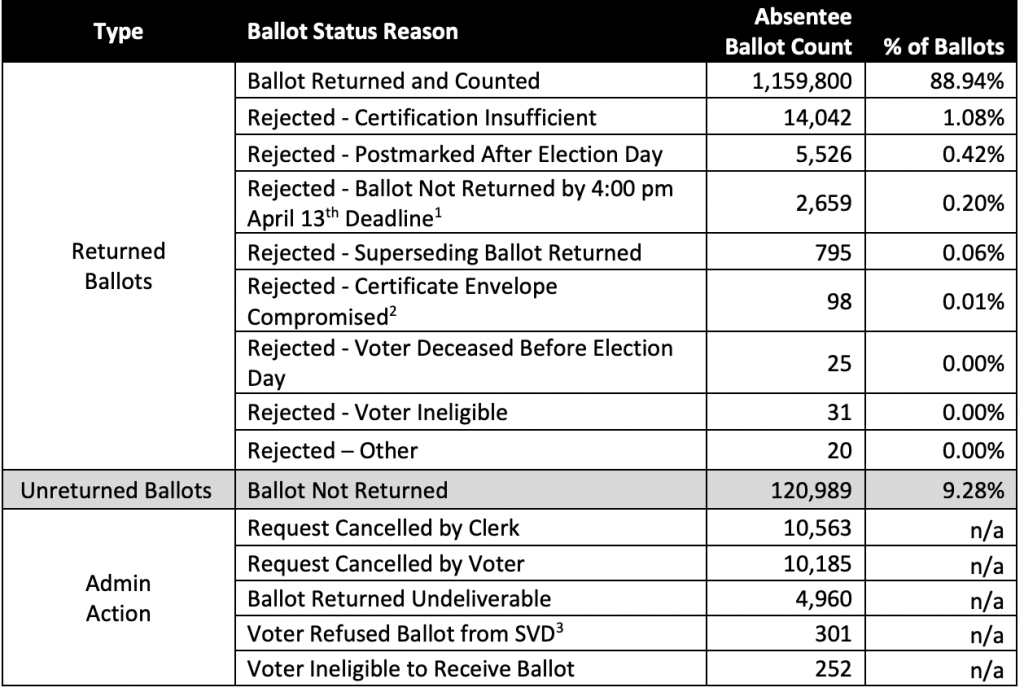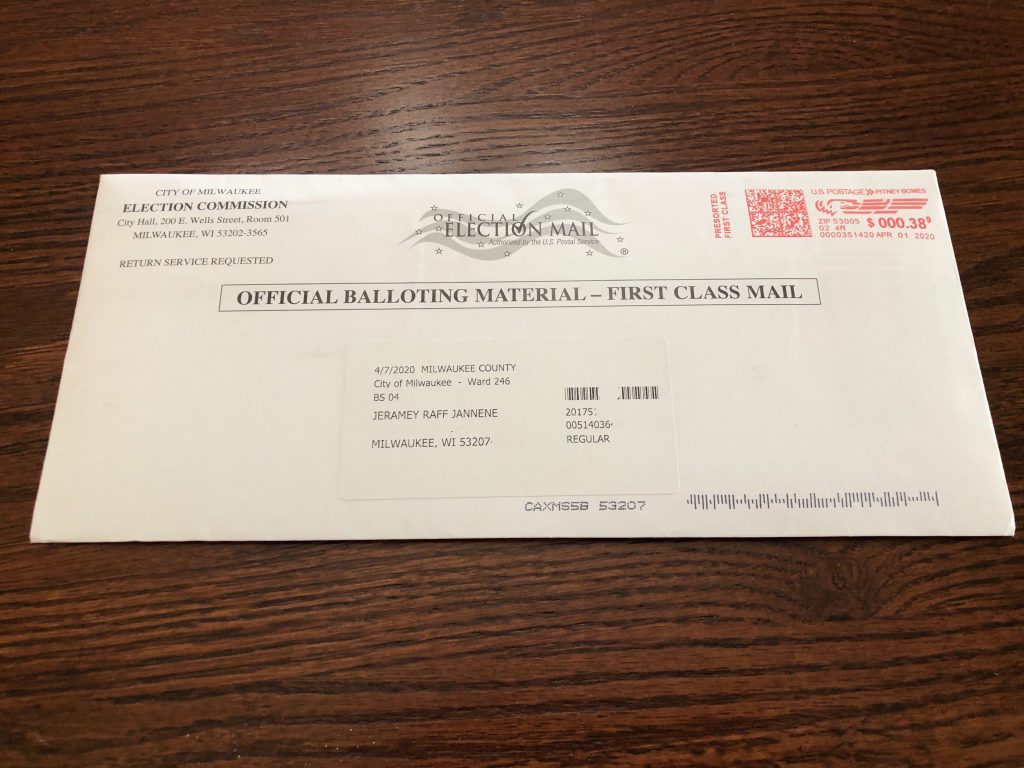Elections Commission Notes ‘Lessons Learned’
Report says 23,186 ballots in April election were rejected and 120,989 never returned.
A report released Monday by the Wisconsin Elections Commission shows that thousands of absentee ballots were rejected or never returned in the April 7 election, but that proportionally the amount of ballots not counted did not differ from past elections.
The April 7 election was held under controversial circumstances as debates rose over the use of in-person voting during a pandemic. In response, more than 1.3 million Wisconsinites requested absentee ballots.
1,159,800 absentee ballots, 88.9%, were ultimately returned and counted. 2,659 were returned late and rejected. 20,537 ballots were rejected for other reasons and 120,989 were never returned.
A total 1.8% of ballots being rejected does not differ much from recent spring elections. In 2016, the last presidential primary, 2.5% of absentee ballots were rejected.

The percentage of absentee ballots rejected or not returned didn’t differ much from previous elections. Table from the Wisconsin Elections Commission.
“Both the ballot rejection and unreturned ballot rates were consistent with or lower than the previous rates,” the WEC report states. “This comparison does not seek to downplay the concerns and experiences reported by voters who had difficulty receiving or returning their ballot or voters who could not meet the witness requirement due to COVID-19 concerns.”
The report also assesses complaints and issues with the April 7 election brought by voters and clerks and offers solutions for the state as it heads toward the fall primary in August and the general election in November.
With the 2020 spring election setting a number of records for use of mail-in voting, municipal and county clerks faced an onslaught of requests and tasks as they also adjusted to guidance and rules that were changing by the minute.
The report addresses some of the problems the United States Postal Service reported in the days following the election. Bins of ballots were found without ever being sent, envelopes returned without clear postmarks and some voters said they never received requested ballots.
The report says WEC has been “unable to learn anything” about specific inquiries, but the commission has been working with the USPS to refine systems for the fall with measures such as intelligent bar codes that can better track ballots once they’re in the mail.
To deal with what is expected to be an even larger demand for absentee voting in the fall presidential election, the WEC proposes some efforts that can be made to help ease the process.
These solutions include better outreach to voters, simplifying forms and processes for less tech-savvy voters and providing more resources to local clerks.
“The April 7, 2020 election introduced countless challenges that Wisconsin clerks successfully overcame, enabling a record number of voters to cast their ballots through the absentee process,” the report says. “Moreover, the final election data conclusively indicates that the election did not produce an unusual number of unreturned or rejected ballots. Despite the overwhelming success of absentee voting as a whole, the experiences leading up to election day were not trouble-free and illuminated several critical areas for improvement.”
The WEC will hold a special meeting to discuss the report May 20 at 4 p.m.
Reprinted with permission of Wisconsin Examiner.
More about the 2020 Spring Primary
- Why Don Natzke Couldn’t Vote - Enjoyiana Nururdin - Aug 9th, 2020
- Centers for Disease Control and Prevention’s Morbidity and Mortality Weekly Report highlights public health measures taken by the Milwaukee Health and Fire Departments, Department of Administration, Election Commission, and the Wisconsin Department of Health Services - City of Milwaukee Health Department - Aug 4th, 2020
- CDC Says Election Did Not Cause COVID-19 Spike - Erik Gunn - Aug 4th, 2020
- Pandemic Reduced Black Vote, Study Finds - Dee J. Hall - Jun 25th, 2020
- Did April Election Hike COVID-19 Cases? - Alana Watson - May 20th, 2020
- Elections Commission Notes ‘Lessons Learned’ - Henry Redman - May 19th, 2020
- Wisconsin Elections News: WEC Releases Analysis of Absentee Voting in April 7 Spring Election - Wisconsin Elections Commission - May 18th, 2020
- Election’s Impact on County’s COVID-19 Cases Unclear - Jeramey Jannene - May 6th, 2020
- Why State’s Voting By Mail Was Chaotic - Daniel C. Vock - May 4th, 2020
- At Least 40 COVID-19 Cases Tied to Election in Milwaukee - Graham Kilmer - Apr 24th, 2020
Read more about 2020 Spring Primary here






















